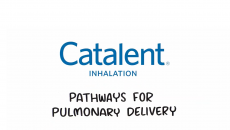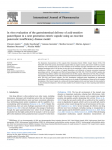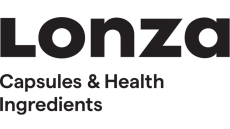Active Biotech drug could have the edge in oral MS race
treatment of multiple sclerosis (MS) has taken another step towards
the finish line with initiation of Phase III trials for the novel
laquinimod compound.
Developed by Swedish firm Active Biotech and licensed to pharma giant Teva, laquinimod is just one of the competitors in the race to become the first oral treatment for MS, but according to Active Biotech there are vital differences between their drug candidate and other oral formulations in development. The once daily laquinimod therapy differentiates itself by being an immunomodulatory compound (capable of modifying or regulating immune functions), in contrast to some rival oral MS treatments in development which affect the body in a different way. "Other companies are developing products that are immunosuppressive rather than immunomodulatory," Active Biotech CEO Sven Andréasson explained to in-PharmaTechnologist.com. Trials of laquinimod thus far have shown a very clear safety profile according to Andréasson, suggesting that it could be a more attractive option for long term use. The drug itself is in tablet form and will be administered once a day, with the recent Phase II trials evaluating dosages of 0.3mg and 0.6mg, both of which were well-tolerated with only some transient and dose-dependent increases in liver enzymes. Labelled a "very druggable compound" by Andréasson, the drug is not difficult to manufacture and Active Biotech has secured a substance patent through to 2019 and applied for a method patent that will protect to 2022 or 2024. Teva will take care of production and pricing for the new product. A non-invasive, oral MS treatment could mean serious revenues for the team that manages to hit the market first. Although other companies are already well on the way with Phase III trials of their compounds, the immunomodulatory mode of action of Active Biotech's drug could give it a critical edge in the market. The company is set to receive double digit royalties on the oral formulation, which could lead to some significant earnings if the product emerges as an MS blockbuster. Currently valued at almost $6bn (€4.4bn), the MS market is growing rapidly, and has been forecast to reach around $10bn by the time oral laquinimod could hit the shelves in three or four years time. Teva already has an MS treatment out on the market in the form of Copaxone (glatiramer acetate), which last year brought in around €1.6bn in revenues - a figure which Andréasson expects to be able to match with laquinimod. "Although there are some products already in Phase 3, like those from Novartis, Merck-Serono or Bayer Schering, they are all immunosuppressive so there is still a clear profile for our drug," he said. With Active Biotech having dedicated eight years of research to the product thus far, and the Phase III trials expected to start later this year, the final product could offer a much needed non-invasive option to the million people worldwide currently suffering with MS.














